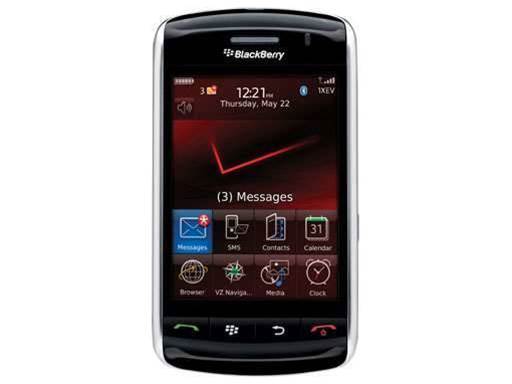
Research In Motion has signalled a delay to its make-or-break smartphone overhaul, sending its shares tumbling.
The BlackBerry maker's shares shed more than seven percent after the company said it did not expect to release a line of phones equipped with its new QNX operating system until late next year, long after its initial promise of a first-quarter delivery.
RIM's co-chief executives Mike Lazaridis and Jim Balsillie, in an apparent bid to cool investor anger at their leadership, said they agreed to take an immediate pay cut to $1.
The pair are also RIM's two largest shareholders and share the chairmanship of the board.
It was the latest in a long series of setbacks for a company that once dominated the smartphone market but, to the chagrin of investors, is now struggling to keep pace with the innovations of Apple and other rivals.
RIM explained that the QNX delay was necessary so it could make use of more powerful and energy-efficient chipsets expected to arrive in mid-2012.
"By then the ecosystem runs the risk of being abandoned," said Colin Gillis, an analyst at BGC Partners in New York.
"They've already got tepid developer support and then they're going to be rolling out these phones right smack in the (midst) of an iPhone 5 (launch) most likely," he said, referring to the next iteration of Apple's smartphone.
To make matters worse, RIM said it would ship just 11-12 million smartphones in the weeks around Christmas, a range that lines RIM up for the first quarter-to-quarter decline in six years during the crucial sales
Its expected shipment figures compare poorly to the 14.1 million phones it shipped in the previous quarter and 14.8 million in the Christmas quarter last year.
The likely drop bodes poorly for RIM as it was banking on an improved BlackBerry 7 line, equipped with the legacy operating system, to stem defections until it could release the QNX line.
"The matter that they turned in a bad quarter shouldn't come as a shock to anybody," said John Jackson, an analyst at CCS Insight in Boston.
"I think the more important issue for RIM is that it is highly unclear exactly when they're going to be able turn things around."
RIM has been counting on the new operating system to make up ground lost to Apple's iPhone and iPad and the slew of devices that make use of Google's Android software.
Its market share, particularly in the United States, has steadily eroded and its share price, down about 73 percent this year, has followed suit.
Subscriptions rise
Including a pre-tax writedown on discounted PlayBook inventory worth US$485 million, RIM made a third-quarter profit of $265 million, or 51 cents a share.
It said it now has almost 75 million subscribers, up from the more than 70 million it reported at the end of its second quarter.
"They're still adding a lot of subscribers, but they're not selling enough phones," said Tavis McCourt, an analyst at Morgan Keegan.
"Are customers just going to upgrade to the iPhone and Android or are they really that loyal where they're going to wait for a better BlackBerry?"
The stock fell to $14 in after-hours Nasdaq trade, after closing at $15.13. In February, just ahead of the PlayBook's launch, RIM shares changed hands for as much as $70.
(Additional reporting by Cameron French, Allison Martell, Jon Cook and Claire Sibonney; Editing by Frank McGurty)



_(20).jpg&h=140&w=231&c=1&s=0)

_(28).jpg&h=140&w=231&c=1&s=0)





 iTnews Executive Retreat - Security Leaders Edition
iTnews Executive Retreat - Security Leaders Edition
 iTnews Cloud Covered Breakfast Summit
iTnews Cloud Covered Breakfast Summit
 Melbourne Cloud & Datacenter Convention 2026
Melbourne Cloud & Datacenter Convention 2026
 The 2026 iAwards
The 2026 iAwards












_(1).jpg&h=140&w=231&c=1&s=0)



